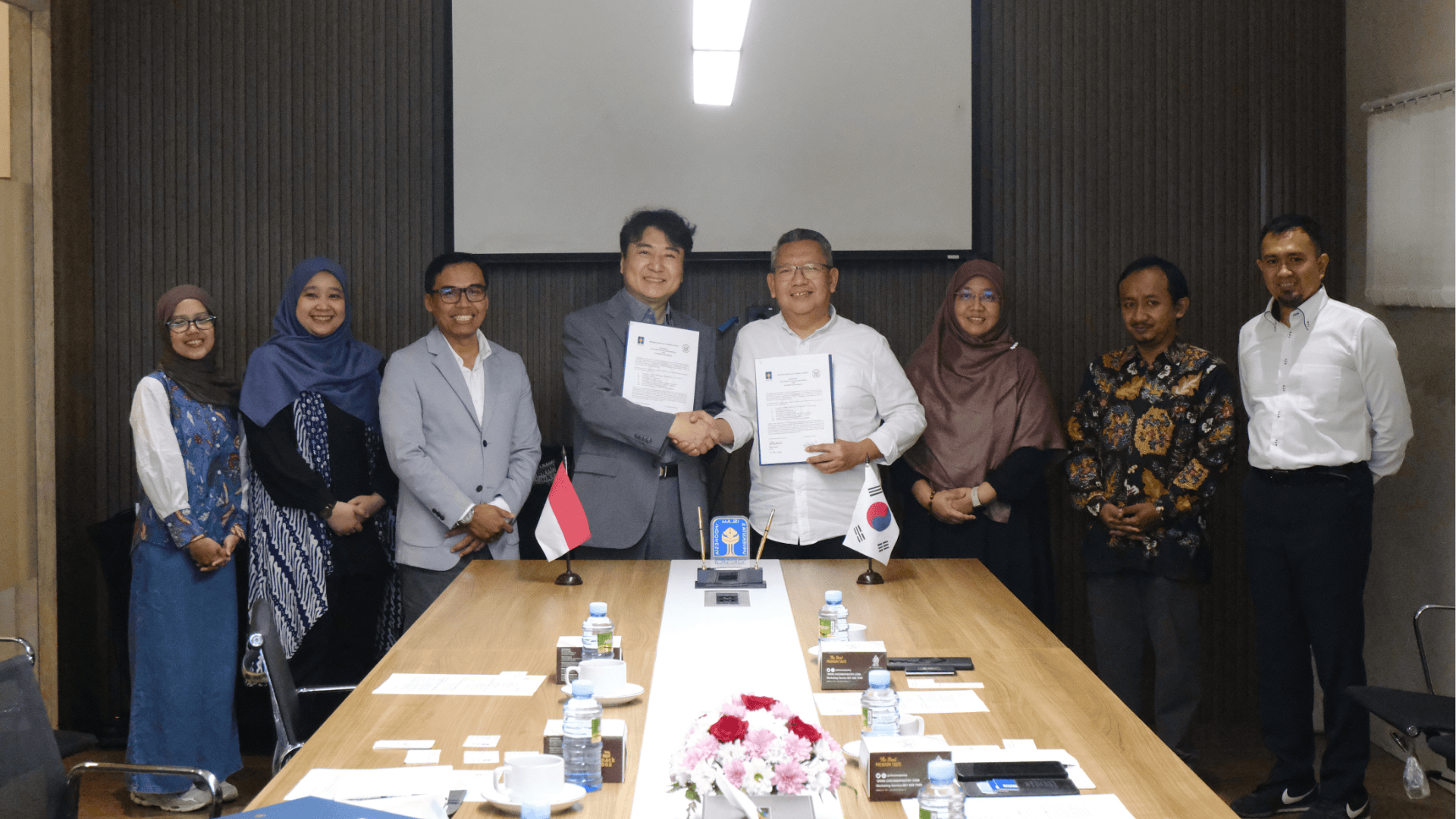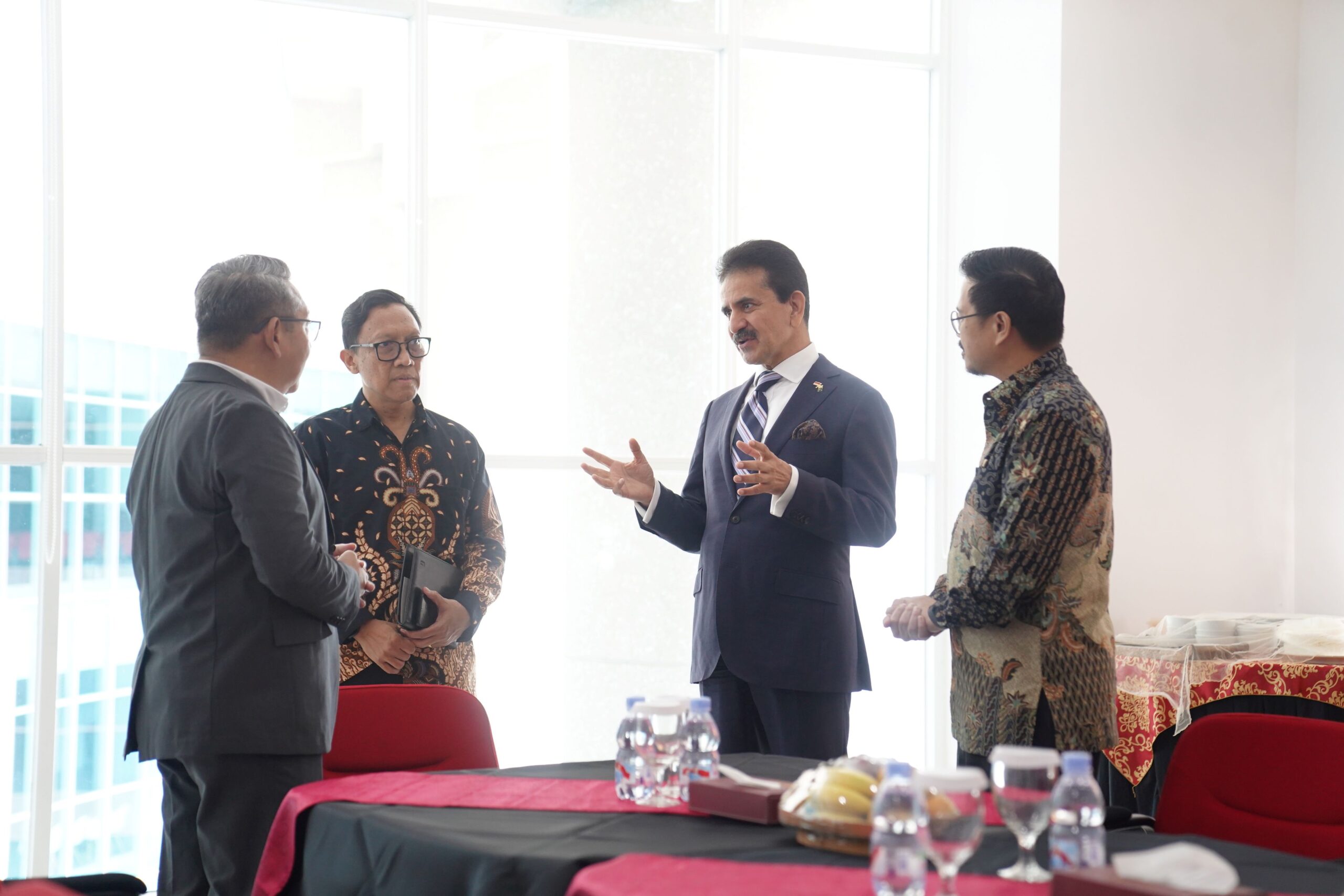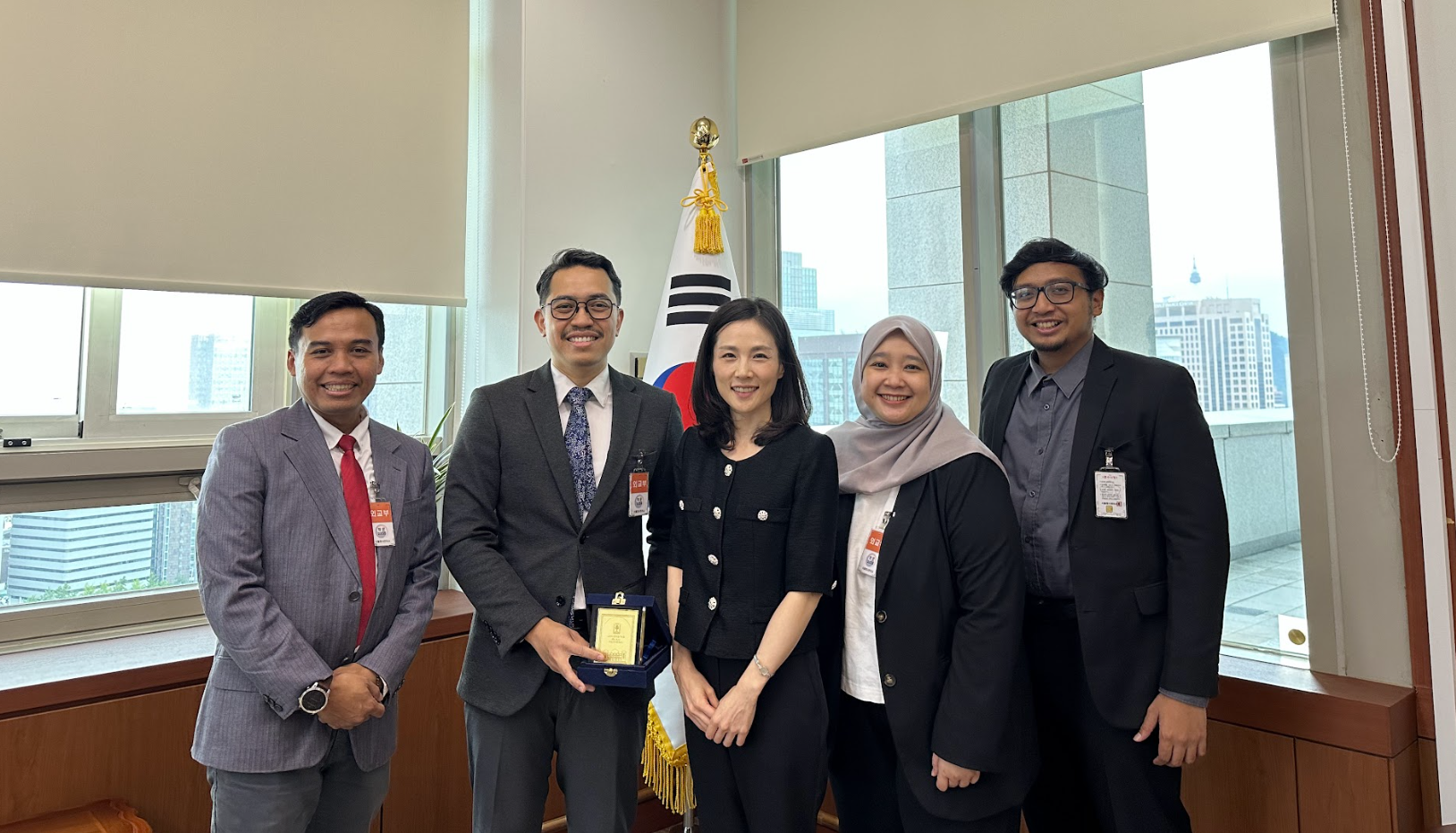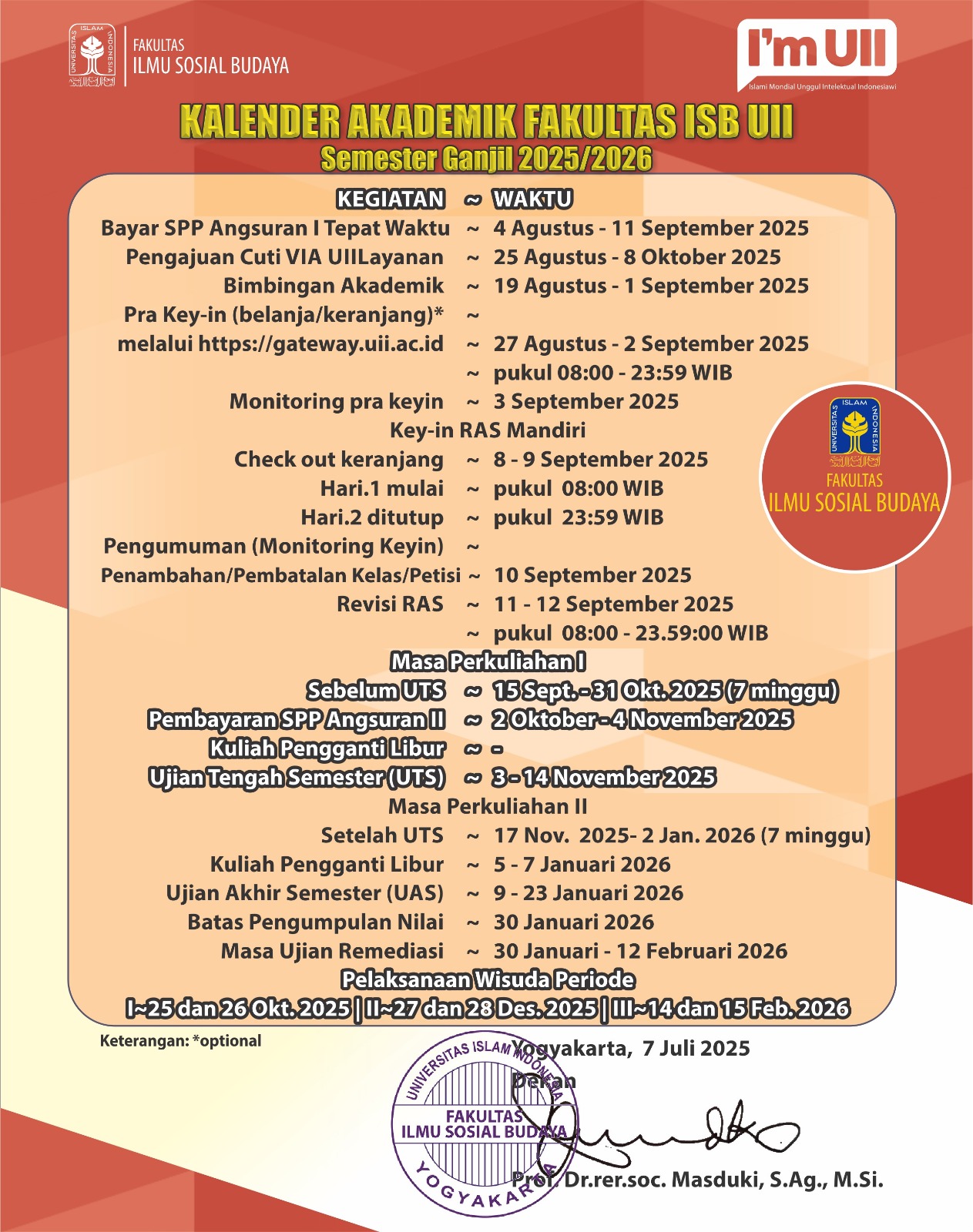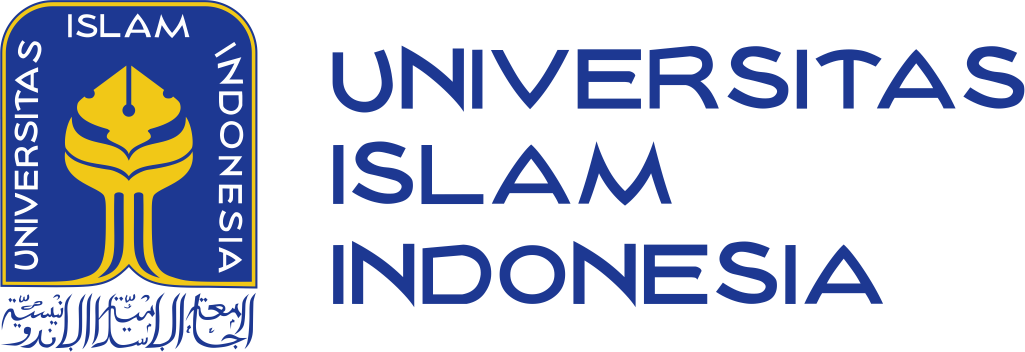Justice and self-determination for Palestine and Papua
Written by Karina Utami Dewi
As Muslim academics in the field of International Relations, we carry a responsibility not only to analyze global politics but also to highlight injustices wherever they occur. Our perspectives, grounded in both faith and scholarship, should challenge selective narratives and encourage a more consistent commitment to justice in the Muslim world.
Having the privilege to teach and research in an islamic university like UII, support for Palestine is not something that is difficult to find. In Indonesia, we feel the pain experienced by our Muslim brothers and sisters in Palestine, we see it as an oppression and violence against not only Palestinian Muslims, but also the Muslims of the world.
In many Muslim communities, particularly in Indonesia, Palestine receives significant attention. Palestinian flags are raised in mosques, prayers are offered for their freedom, and movements of solidarity are widespread. This commitment reflects the deep historical, religious, and emotional connections Muslims feel toward Palestine.
Yet, this passion for justice often fails to extend with the same intensity to Papua, a region much closer geographically, where people have also endured marginalization, violence, and a long struggle for self-determination.
If Indonesian Muslims indeed support self-determination, and stand against oppression and violence, then supporting Palestine’s freedom yet staying silent when injustices still take place in Papua is actually not aligned with the spirit and principle of justice in Islam. In fact, the Qur’an calls for defending all oppressed people, regardless of their identity. Whether they are Muslims, or not.
The centrality of Palestine in Muslim consciousness is undeniable. The occupation, displacement, and ongoing aggression against Palestinians represent a grave injustice that resonates with Muslims worldwide. For Indonesian Muslims in particular, solidarity with Palestine has become a collective expression of religious duty and political consciousness. The importance of Al-Aqsa Mosque and the shared history of colonial resistance further deepen this emotional bond. Supporting Palestine is, without doubt, aligned with the command of the Qur’an to defend the oppressed and to resist tyranny.
In contrast, the struggle of Papua often remains on the margins of Muslim activism in Indonesia. Papua’s people continue to face systemic discrimination, economic inequalities, and political repression. Yet, the issue is often overlooked, framed merely as an internal problem of Indonesia, rather than as a human rights and justice concern. This silence is deafening, given the Qur’an’s insistence that Muslims must stand for justice universally, not selectively. If Indonesian Muslims are distraught by the suffering of Palestinians thousands of kilometers away, why do we remain silent about Papuans suffering in our own backyard? Is our anger against injustice limited only to Muslims, and anyone that is not a part of our community does not deserve the same support?
The Qur’an commands:
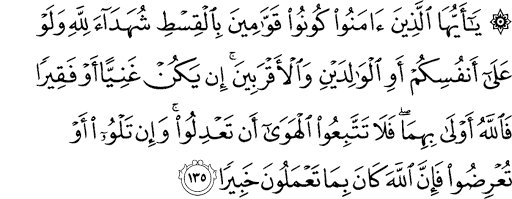
“O you who have believed, be persistently standing firm in justice, witnesses for Allah, even if it be against yourselves or parents and relatives. Whether one is rich or poor, Allah is more worthy of both. So follow not [personal] inclination, lest you not be just. And if you distort [your testimony] or refuse [to give it], then indeed Allah is ever, with what you do, Acquainted.” (Qur’an 4:135).
This verse emphasizes that justice is not limited by geography, religion, or political convenience. To advocate passionately for Palestine while ignoring Papua might seem to reduce Islam’s universal call for justice. Both Palestinians and Papuans are peoples struggling for dignity, freedom, and recognition, and both deserve equal solidarity from Muslims.
Another verse reminds Muslims of their duty to the oppressed:

“And what is [the matter] with you that you fight not in the cause of Allah and [for] the oppressed among men, women, and children who say, ‘Our Lord, take us out of this city of oppressive people and appoint for us from Yourself a protector and appoint for us from Yourself a helper?’” (Qur’an 4:75).
This call is not exclusive to Palestine, or Muslims. It includes all who are oppressed, whether in Gaza, the West Bank, or Papua. The challenge for Indonesian Muslims, then, is to apply their solidarity consistently, ensuring that their religious commitments are not shaped by politics or distance but by the universal Islamic duty to uphold justice.
Islam teaches that justice must be consistent and universal. While the solidarity shown toward Palestine is commendable, Muslims in Indonesia must also extend the same empathy and advocacy to Papua. To ignore the struggle of Papuans while championing Palestinians risks undermining the very essence of Islamic justice. Both Palestine and Papua are struggles for dignity and freedom, and both demand the attention of a faithful Muslim conscience. Hopefully, by embracing this, Muslims can live up to the Qur’anic command to defend all oppressed peoples, not just those who fit into familiar narratives. wallahu aalamu bissawab.

